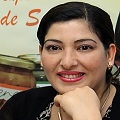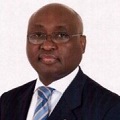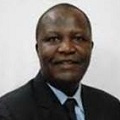
IMF SEMINAR EVENT
DATE: April 21, 2017
DAY: Friday
10:00 AM - 11:15 AM
LOCATION: IMF HQ1, Meeting Halls A&B
Overview
In a context of overall lackluster global growth and a generally unsupportive external environment, emerging market and developing economies face significant policy challenges in maintaining the levels of growth required to secure sustained movements out of poverty. The year 2016 was particularly difficult for sub-Saharan Africa, with growth estimated to have been negative in per capita terms and slowing in the majority of countries. However, this aggregate picture masks considerable heterogeneity. Commodity exporters, including many of the region’s largest countries, are facing severe economic strains. But some sub-Saharan African countries continue to register robust growth, due to ongoing infrastructure investment, strong growth in private consumption, and general improvement in the business climate. However, even in those countries, there is rising concern with regard to the sustainability of the policies employed to support the recent growth momentum. This seminar offers an opportunity to reflect on the challenges faced by sub-Saharan Africa at this juncture and to identify policies—macroeconomic and structural—that could work to reinvigorate growth in the region.
Join the conversation #IMFAfrica
Join the conversation via #IMFAfrica
Sub-Saharan Africa How to Return to Vigorous Growth?
Sub-Saharan Africa How to Return to Vigorous Growth?
Panelists
Moderator: Antoinette Monsio Sayeh

Antoinette M. Sayeh assumed office as Deputy Managing Director of the International Monetary Fund on March 16, 2020.
Ms. Sayeh has been a Distinguished Visiting Fellow at the Center for Global Development (CGD) since November 2016 and was Co-Chair for the recently concluded 19th Replenishment of the International Development Association (IDA19), the World Bank’s Fund for the poorest. She previously oversaw and significantly enhanced the International Monetary Fund’s engagement with its sub-Saharan African members as Director of the African Department between July 2008 and August 2016. Full bio
Panelist: Randa Filfili
 Randa El Haddad Filfilli is the CEO of Zena Exotic Fruits, a Senegalese SME that specializes in the transformation of local fruits and vegetables into natural products such as jams and jellies, syrups, juices and pepper sauces. Zena Exotic Fruits is one of Senegal’s leading international brands. To date, the brand is present in Africa, Europe, the United States, Canada, the Middle East and Asia. Prior to this, Ms. Filfilli spent 11 years in the educational sector. Completing a Bachelor’s degree in Marketing in 2014 marked her transition to the food industry. Her objective is and will always be to make great quality and healthy products while involving local talent and contributing to the community’s economic development. To help support other women in the food processing industry, Randa volunteers her time to help women organized in Small Economic Interest groups, by training them in quality control but also marketing techniques.
Randa El Haddad Filfilli is the CEO of Zena Exotic Fruits, a Senegalese SME that specializes in the transformation of local fruits and vegetables into natural products such as jams and jellies, syrups, juices and pepper sauces. Zena Exotic Fruits is one of Senegal’s leading international brands. To date, the brand is present in Africa, Europe, the United States, Canada, the Middle East and Asia. Prior to this, Ms. Filfilli spent 11 years in the educational sector. Completing a Bachelor’s degree in Marketing in 2014 marked her transition to the food industry. Her objective is and will always be to make great quality and healthy products while involving local talent and contributing to the community’s economic development. To help support other women in the food processing industry, Randa volunteers her time to help women organized in Small Economic Interest groups, by training them in quality control but also marketing techniques.
Panelist: Mitsuhiro Furusawa
 Mitsuhiro Furusawa has been a Deputy Managing Director with the
International Monetary Fund since 2015. Prior to joining the Fund, he was
Special Advisor to Japanese Prime Minister Shinzo Abe and Special Advisor to
the Minister of Finance. Mr. Furusawa formerly held several senior positions in
the Ministry of Finance of Japan including as Vice Minister of Finance for
International Affairs and Director-General of the Financial Bureau. He holds an
LL.B. degree from the University of Tokyo and also graduated from the École
Nationale d’Administration in Paris.
Mitsuhiro Furusawa has been a Deputy Managing Director with the
International Monetary Fund since 2015. Prior to joining the Fund, he was
Special Advisor to Japanese Prime Minister Shinzo Abe and Special Advisor to
the Minister of Finance. Mr. Furusawa formerly held several senior positions in
the Ministry of Finance of Japan including as Vice Minister of Finance for
International Affairs and Director-General of the Financial Bureau. He holds an
LL.B. degree from the University of Tokyo and also graduated from the École
Nationale d’Administration in Paris.
Panelist: Donald Kaberuka
 Formerly, 7th President, African Development Bank (2005–2015) Under Dr. Kaberuka’s leadership the Bank tripled its capital from USD 30 billion to USD 100 billion and doubled the portfolio to USD 12 billion per annum. His leadership was characterized by a "big push” on infrastructure. He also championed an inclusive growth agenda; promoting a strong link between security, development and environment, establishing a ringfenced facility for conflict-affected countries. Prior to joining the African Development Bank, Dr. Kaberuka was Finance Minister of Rwanda for eight years (1997–2005). Dr. Kaberuka is an alumnus of the University of Glasgow in Scotland and was Hauser Leader in Residence at Harvard Kennedy School. He currently serves on the Board of the Rockefeller Foundation, the Mo Ibrahim Foundation, the Centre for Global Development and is a Senior Adviser to the global Private Equity firm, TPG-Satya, promoting investment on the African Continent. Earlier this year Dr. Kaberuka was appointed as a Special Envoy of the African Union on sustainable Financing for the Union and funding for Peace in Africa.
Formerly, 7th President, African Development Bank (2005–2015) Under Dr. Kaberuka’s leadership the Bank tripled its capital from USD 30 billion to USD 100 billion and doubled the portfolio to USD 12 billion per annum. His leadership was characterized by a "big push” on infrastructure. He also championed an inclusive growth agenda; promoting a strong link between security, development and environment, establishing a ringfenced facility for conflict-affected countries. Prior to joining the African Development Bank, Dr. Kaberuka was Finance Minister of Rwanda for eight years (1997–2005). Dr. Kaberuka is an alumnus of the University of Glasgow in Scotland and was Hauser Leader in Residence at Harvard Kennedy School. He currently serves on the Board of the Rockefeller Foundation, the Mo Ibrahim Foundation, the Centre for Global Development and is a Senior Adviser to the global Private Equity firm, TPG-Satya, promoting investment on the African Continent. Earlier this year Dr. Kaberuka was appointed as a Special Envoy of the African Union on sustainable Financing for the Union and funding for Peace in Africa.
Panelist: Alamine Ousmane Mey
 Alamine Ousmane Mey, has been Minister of Finance of Cameroon since 2011. He is the Chairman of Central Africa Investment SA. In 1993, he joined the CCEI bank (which became Afriland First Bank), and was promoted to Chief Executive Officer in 2003 Mr. Mey also served as General Manager and a Member of the Management Board of Afriland First Bank. In 2004, he piloted the launch of I-CARD, the first e-wallet in the Central African sub-region. He studied in Germany at the Technical University of Rhineland-Westphalia in Aachen, as well as in Belgium and Turkey. Minister Mey was recognized as Finance Minister of the Year at the prestigious African Banker Awards 2016.
Alamine Ousmane Mey, has been Minister of Finance of Cameroon since 2011. He is the Chairman of Central Africa Investment SA. In 1993, he joined the CCEI bank (which became Afriland First Bank), and was promoted to Chief Executive Officer in 2003 Mr. Mey also served as General Manager and a Member of the Management Board of Afriland First Bank. In 2004, he piloted the launch of I-CARD, the first e-wallet in the Central African sub-region. He studied in Germany at the Technical University of Rhineland-Westphalia in Aachen, as well as in Belgium and Turkey. Minister Mey was recognized as Finance Minister of the Year at the prestigious African Banker Awards 2016.
Panelist: Felix Mutati
 Felix Mutati was appointed Minister of Finance in September and presented his maiden budget dubbed “Zambia Plus” which was approved in December 2016. From 2011 into 2016, Felix Mutati was a Member of Parliament in Zambia with special responsibility for scrutinizing government performance in the economic affairs committee, and served as an elder of the Common Market for Eastern and Southern Africa (COMESA). Minister Mutati has served as cabinet minister for Energy and Water Development (2002–04) and, subsequently, for Commerce, Trade & Industry (2004–2011). During these tenures, he spearheaded national initiatives aimed at poverty alleviation and private sector development, as well as coordinated international efforts to harmonize regional trade and investment. He chaired the body of Ministers of Trade of the Southern African Development Community (SADC) during the 2007/08 consolidation of the SADC free trade area and the initiation of the roadmap to establishing a SADC customs union. He has also held various positions at the international level, including as Coordinator of the Least Developed Countries (LDCs) at the World Trade Organization (WTO). Minister Mutati is a Fellow of the Chartered Accountants and has delivered lectures on wide-ranging issues such as regional integration, the impact of tax reforms on poverty reduction and corporate governance and social responsibility.
Felix Mutati was appointed Minister of Finance in September and presented his maiden budget dubbed “Zambia Plus” which was approved in December 2016. From 2011 into 2016, Felix Mutati was a Member of Parliament in Zambia with special responsibility for scrutinizing government performance in the economic affairs committee, and served as an elder of the Common Market for Eastern and Southern Africa (COMESA). Minister Mutati has served as cabinet minister for Energy and Water Development (2002–04) and, subsequently, for Commerce, Trade & Industry (2004–2011). During these tenures, he spearheaded national initiatives aimed at poverty alleviation and private sector development, as well as coordinated international efforts to harmonize regional trade and investment. He chaired the body of Ministers of Trade of the Southern African Development Community (SADC) during the 2007/08 consolidation of the SADC free trade area and the initiation of the roadmap to establishing a SADC customs union. He has also held various positions at the international level, including as Coordinator of the Least Developed Countries (LDCs) at the World Trade Organization (WTO). Minister Mutati is a Fellow of the Chartered Accountants and has delivered lectures on wide-ranging issues such as regional integration, the impact of tax reforms on poverty reduction and corporate governance and social responsibility.






